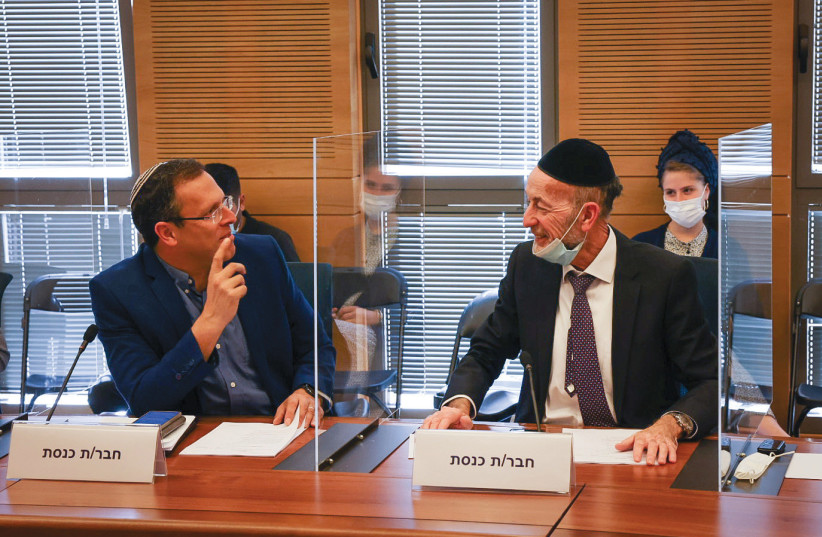A law proposal to change the election process of Israel's Chief Rabbis was struck down in its initial reading in the Knesset plenum on Wednesday after a controversial vote ended in a tie.
The law, the objective of which was to diversify the election committee so that the rabbis are not necessarily chosen from within the haredi community, was proposed by Yesh Atid MK Moshe Tur-Paz. It was not directly connected to the reforms being carried out by Religious Affairs Minister Matan Kahana.
The vote was deemed a 51-51 tie after MK Nir Orbach's vote was disqualified since it was not clear whether he voted after stating that he was not participating in the vote, which is a violation of Knesset protocol.
The law will be proposed again as soon as possible, Tur-Paz said on Twitter.
The law included three changes in the election process: Changing the makeup of the election committee, making the voting public instead of behind closed doors, and only allowing applicants who are certified dayanim (halakhic judges).

In its explanatory notes, the law cites the Chief Rabbinate's lack of public support as its major justification. Approximately 80% of the Jewish Israeli public do not have faith in the institution, according to polls cited by the law proposal.
"MK Tur-Paz along with the Minister for the ruin of religion Matan Kahana wish to create a reform in the Chief Rabbinate and have people with no connection to religion and even people with crooked opinions about Halakha and Judaism enter the body that chooses the country's rabbis," MK Uri Maklev (UTJ) said in the plenum after the bill was rejected.
"This bill brings foreign and strange influences into the Chief Rabbinate with its full approval, this bill would ruin the rabbinate and allow riffraff decide on the makeup of the Chief Rabbinate."
